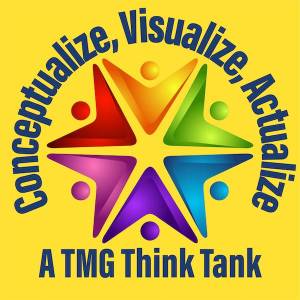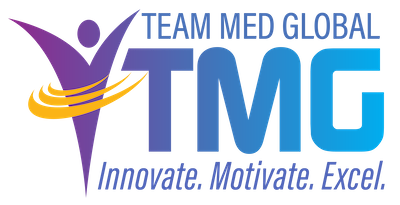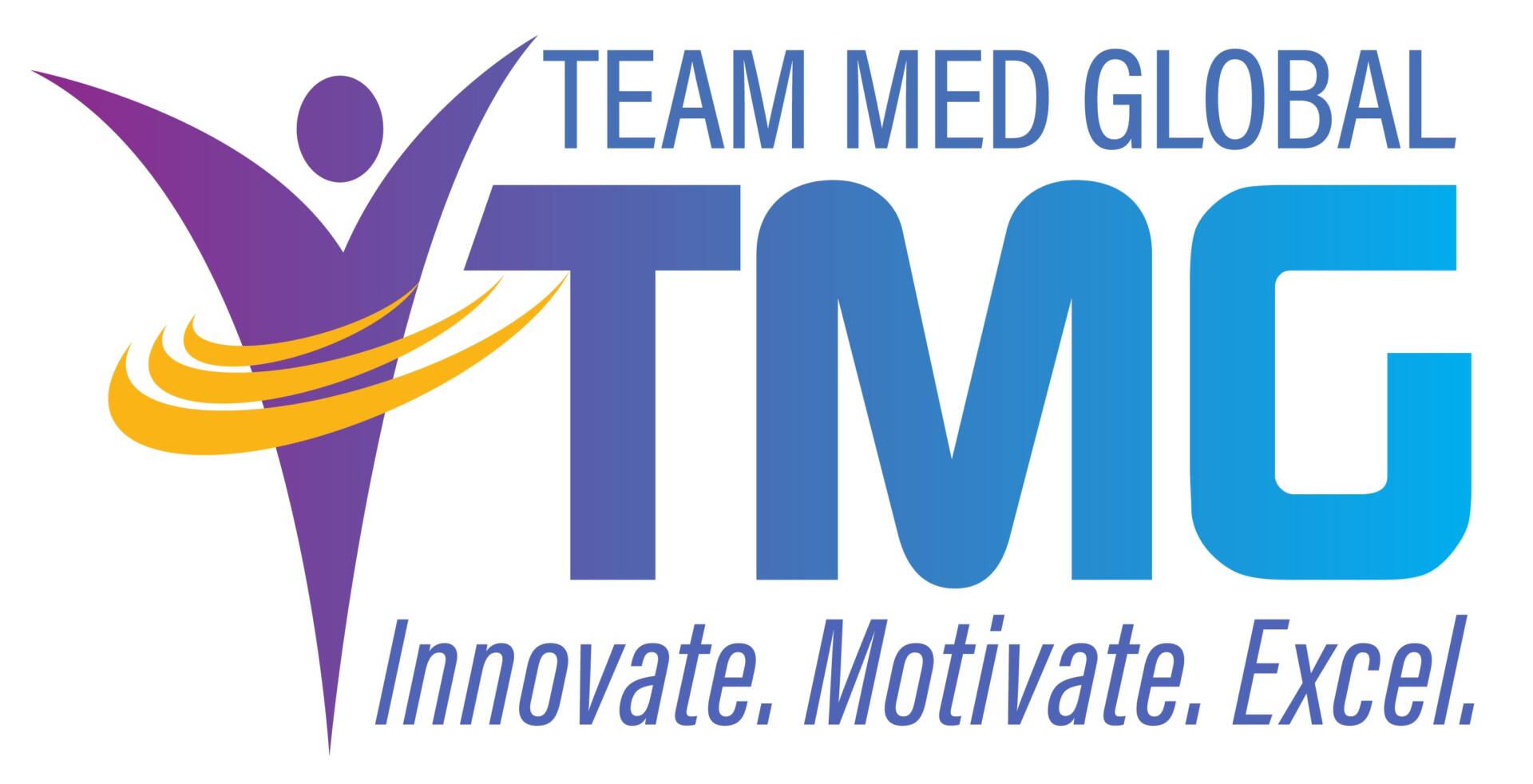 In early October, Team Med Global held the virtual event, “Conceptualize, Visualize, Actualize: A TMG Think Tank.” MSPs from around the country gathered to reimagine Medical Staff Services. Using insightful prompts, breakout rooms, and virtual whiteboards, the Think Tank tapped into participants’ experience and creativity to envision opportunities for Medical Staff Services to evolve to meet the healthcare industry’s ever-changing needs.
In early October, Team Med Global held the virtual event, “Conceptualize, Visualize, Actualize: A TMG Think Tank.” MSPs from around the country gathered to reimagine Medical Staff Services. Using insightful prompts, breakout rooms, and virtual whiteboards, the Think Tank tapped into participants’ experience and creativity to envision opportunities for Medical Staff Services to evolve to meet the healthcare industry’s ever-changing needs.
Donna Goestenkors, Nicole Keller, Liz Glover, Maggie Wilkerson, and Hadley Domnick facilitated group discussions on wide-ranging topics. What follows is each prompt, along with a summary of discussion highlights.
The national MSP staffing shortage will likely continue through the end of this decade and beyond. What can be done to create a pipeline of MSPs to alleviate the shortfall?
Two primary solutions emerged from small group discussions of the challenges surrounding MSP staffing shortages: post-secondary education and promoting the profession.
Post-secondary education. Community colleges were seen as the preferred incubator for new MSPs. The idea of a two-year associate degree in Medical Staff Services or Credentialing surfaced, as did a one-year community college program followed by an internship in medical staff services or payer enrollment. Participants viewed NAMSS’ effort to add Medical Services Professional to the U.S. Bureau of Labor Statistics’ Standard Occupational Classification as key to this initiative, as it would open up federal and state funding for MSP-related career technical education (CTE) programs, as well as student eligibility for CTE grants and loans.
Promoting the profession. Two threads surfaced for promoting the profession, both revolving around raising the profile of MSPs. First, participants emphasized the importance of introducing medical staff services to those who are positioned to influence those who might enter the pipeline. This includes high school counselors, CTE schools with billing and coding programs, and CTE schools that have health and business programs who may not know that an MSP combines both skill sets. Second, participants underscored the potential for recruiting internal candidates through a variety of initiatives, such as joining hospital committees, orientations for new directors and medical staff members, and educating employees about the critical role of MSPs.
In what ways will the responsibilities of Medical Staff Services change between now and 2030?
Participants anticipate that MSS responsibilities will increase significantly through the end of the decade. Within the MSP’s current portfolio, they expect an increase in telehealth and credentialing by proxy, as well as state applications. Many see a future where departments and functions overlap, such as a continuation of the trend to merge credentialing and payer enrollment. In addition, an increase in employed providers may mean that there will be greater blending of human resources responsibilities and knowledge and medical staff services responsibilities and knowledge – including knowledge of employment contracting. Similarly, the medical staff services and quality departments may merge as provider competency evaluations become increasingly important. Other trends identified included centralizing credentialing and relying on credentials verification organizations (CVOs), greater reliance on ECFMG as those educated outside of the U.S. fill the physician shortage, and the need for MSPs to be involved in the entire onboarding process.
What are the current information technology gaps in Medical Staff Services? What technologies are needed to support innovative operations, including credentialing and privileging?
The central themes that emerged from the discussion of information technology were the lack of interoperability between systems and the need to have a single source of truth for provider data. Broadly, the interoperability gap was characterized as connecting systems relating to credentialing, privileging, FPPE/OPPE, peer review, and payer enrollment. Specifically, participants saw the need for technologies that support a paperless workflow, artificial intelligence in databases, and meeting minute automation. In addition, it was widely recognized that there is a need to standardize existing national systems in order to access the full spectrum of information needed for credentialing and privileging, and to have technology that scrubs protected information while allowing MSPs to share peer review information about a provider.
What skill gaps currently exist in the MSP profession? What new skills and competencies will MSPs need in the coming decade?
Participants offered that, as a whole, MSPs have a number of skill gaps. Virtually every group mentioned that many in the profession have a dearth of critical thinking, negotiation, and networking skills. Also cited was the need for skills training in communication, facilitation, and time management. Several areas surfaced in the realm of hard skills, including virtual meeting software, billing, claims, medical terminology, risk management, data analysis, and budgeting. The need for deep familiarity with state law, federal law, and accreditation standards was also emphasized.
Does the term “Medical Staff Services” adequately reflect our profession? If not, what alternative terms could be used?
Most participants felt that “Medical Staff Services” was an inadequate descriptor, as it doesn’t describe the work of CVOs and leaves out payer enrollment. However, there wasn’t a consensus regarding an alternate term. Three possibilities emerged: “Medical Affairs,” “Patient Safety Services,” and “Professional Staff Services.” An industry veteran noted that this topic has resurfaced time and again over the past 45 years, going back to a time when MSPs were called “medical staff secretaries.” Some participants indicated that they were more concerned about the duties outlined in MSP job descriptions than the professional designation “MSP,” while others emphasized that the most important consideration is that in a hospital the Medical Staff Services Department is recognized as an independent department and that the director is recognized as equal to other hospital department directors.
What resources (books, guides, classes, conferences, software, professional associations, etc.) are needed to help MSPs perform at their best while feeling professionally fulfilled?
Two primary themes emerged from participants’ discussion. First, cost considerations were of utmost importance. Participants felt strongly that organizations should allocate a budget for professional development, or that teams could make dollars stretch by sending one member who could then share with the rest of the team. Similarly, while conferences were seen as valuable, virtual or hybrid conferences are more accessible for MSPs on a budget. Second, a variety of specific resources and tools were suggested to help MSPs perform at their best. These included foundational education, certification resources, software training, state associations and state association libraries, key performance indicators (KPIs) and metrics from daily work, virtual lunches, and monthly “see one, teach one, do one” sessions.
Events like “Conceptualize, Visualize, Actualize: A TMG Think Tank” allow Team Med Global to keep its finger on the pulse of the Medical Staff Services profession and the evolution of our industry. Plan to join Team Med Global in October 2023 for TMG’s next think tank. Your participation will create positive change in Medical Staff Services.

